
OR
India's Modi looks to budget to shore up political base; jobs and farmers in focus
Published On: February 1, 2019 12:46 PM NPT By: Reuters

NEW DELHI, Feb 1: Indian Prime Minister Narendra Modi’s government is expected to try and shore up its political support with big ticket farm giveaways and tax cuts for the middle class in its final federal budget on Friday, months before elections.
Modi is facing growing discontent over depressed farm incomes and doubts over whether his policies are creating enough jobs. A local media report on Thursday quoted a government survey as saying the jobless rate was the highest in at least 45 years, putting further pressure on the government.
Piyush Goyal, the interim finance minister, will present the 2019-20 budget to parliament, in the absence of Finance Minister Arun Jaitley, who is currently in the United States for medical treatment.
The government is set to step up rural welfare spending by 16 percent for the fiscal year beginning April to 1.3 trillion rupees ($18.25 billion), two government sources said, aiming to boost support in the countryside where more than two-thirds of India’s 1.3 billion people live.
The budget, which is interim and is likely to be followed by a full one in July, is expected to project economic growth of around 7.5 percent for the next financial year, while expanding capital spending on railways, roads, ports by 7-8 percent, and estimating an increase in revenue of about 15 percent, officials said.
“The country’s macroeconomic parameters are very healthy, the GDP growth has been very good,” Gopal Krishna Agarwal, the ruling Bharatiya Janata Party’s (BJP) spokesman for economic affairs, told Reuters.
“It will be an important budget as far as the future course of action for some sectors and segments of the economy, that need support, are concerned. They will definitely find a place in this budget, like agriculture, employment and the middle class.”
He said rules for small and medium-sized businesses and the manufacturing sector could be “tweaked to address issues such as liquidity, credit, capital formation, demand creation, attracting more private investments”.
Stung by opposition parties’ victories in three state polls in December and needing to call a national election by May, Modi has already exempted many small businesses from paying taxes under a unified goods and services tax (GST).
The government is now considering raising the income level at which people need to pay personal tax, long a demand for the country’s influential middle class.
“The pressure to further expand the farmer welfare program ahead of the 2019 elections is high for PM Modi,” said CLSA India.
More than 900 million people will be eligible to cast votes in the world’s biggest ever democratic exercise and the pressure to woo them is intense.
Rahul Gandhi, the leader of the main opposition Congress party, is closing in on Modi’s lead, according to polls. His promise of a minimum income for the poor has increased pressure on the government to make populist announcements in its budget.
The electoral compulsions mean that major economic reforms, such as tax cuts for bigger companies and plans to bring down the budget deficit, could be put on hold at least until after the election, government sources said.
The higher spending, along with a shortfall in tax collections, will push the fiscal deficit up to the equivalent of 3.5 percent of gross domestic product for the year ending in March, overshooting a previous 3.3 percent target, according to one of the sources with direct knowledge of budget discussions.
That would fit with the expectations of a Reuters poll of economists.
The source said there was a chance that the government could take corrective action in March, with an expectation that the election schedule will be settled by that time and that public focus will shift to campaigning.
“In our view, with the upcoming polls gaining precedence, fiscal consolidation is likely to take a back seat,” said Nirmal Bang, a brokerage.
You May Like This

Rise of a common man
People found in Modi a person they could relate to. When he named himself a chaukidar, the guard of the... Read More...
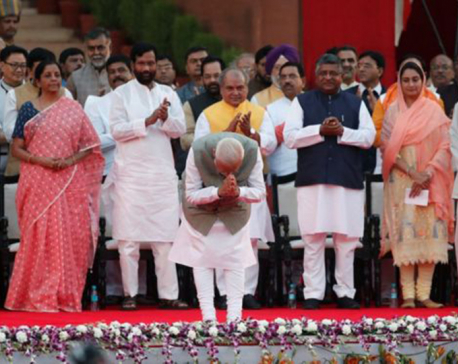
Modi sworn in for second term as Indian prime minister
NEW DELHI, May 30: Narendra Modi has been sworn in for a second term as India’s prime minister after an... Read More...
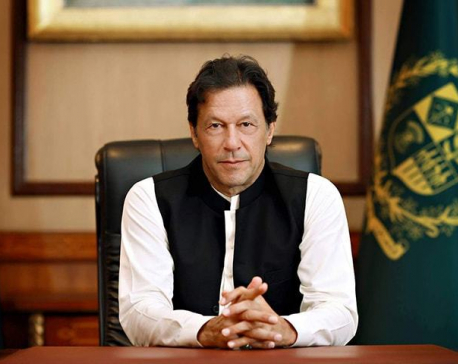
Pakistan PM Imran Khan congratulates Modi on election victory, calls for peace
ISLAMABAD, May 23: Pakistani Prime Minister Imran Khan congratulated India’s Narendra Modi on the runaway election victory of his Hindu-nationalist... Read More...





Just In
- Nepalgunj ICP handed over to Nepal, to come into operation from May 8
- Nepal to gift two elephants to Qatar during Emir's state visit
- NUP Chair Shrestha: Resham Chaudhary, convicted in Tikapur murder case, ineligible for party membership
- Dr Ram Kantha Makaju Shrestha: A visionary leader transforming healthcare in Nepal
- Let us present practical projects, not 'wish list': PM Dahal
- President Paudel requests Emir of Qatar to initiate release of Bipin Joshi
- Emir of Qatar and President Paudel hold discussions at Sheetal Niwas
- Devi Khadka: The champion of sexual violence victims



_20240423174443.jpg)





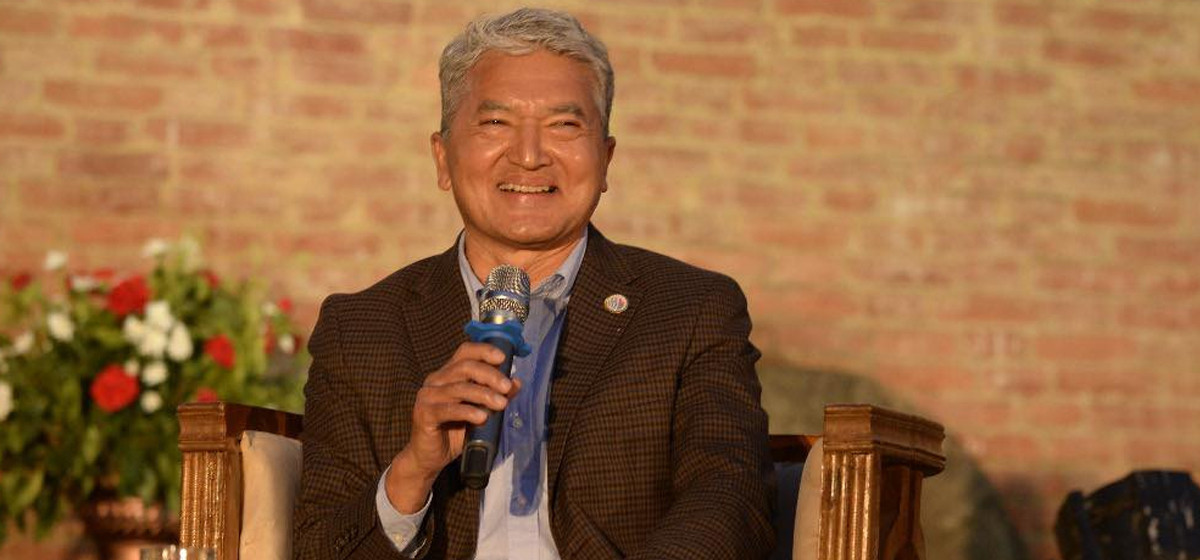
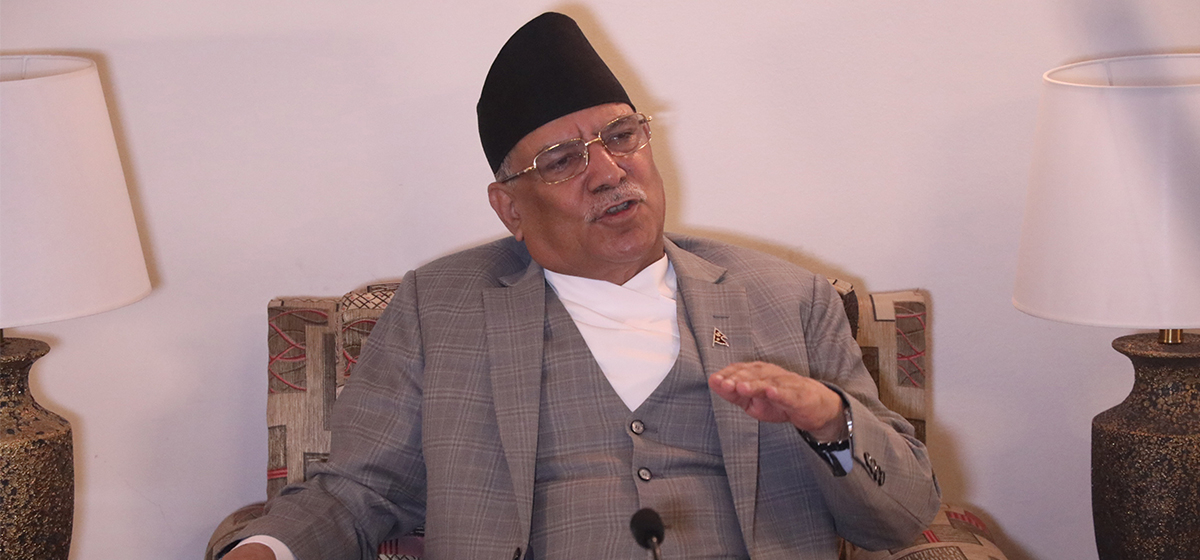

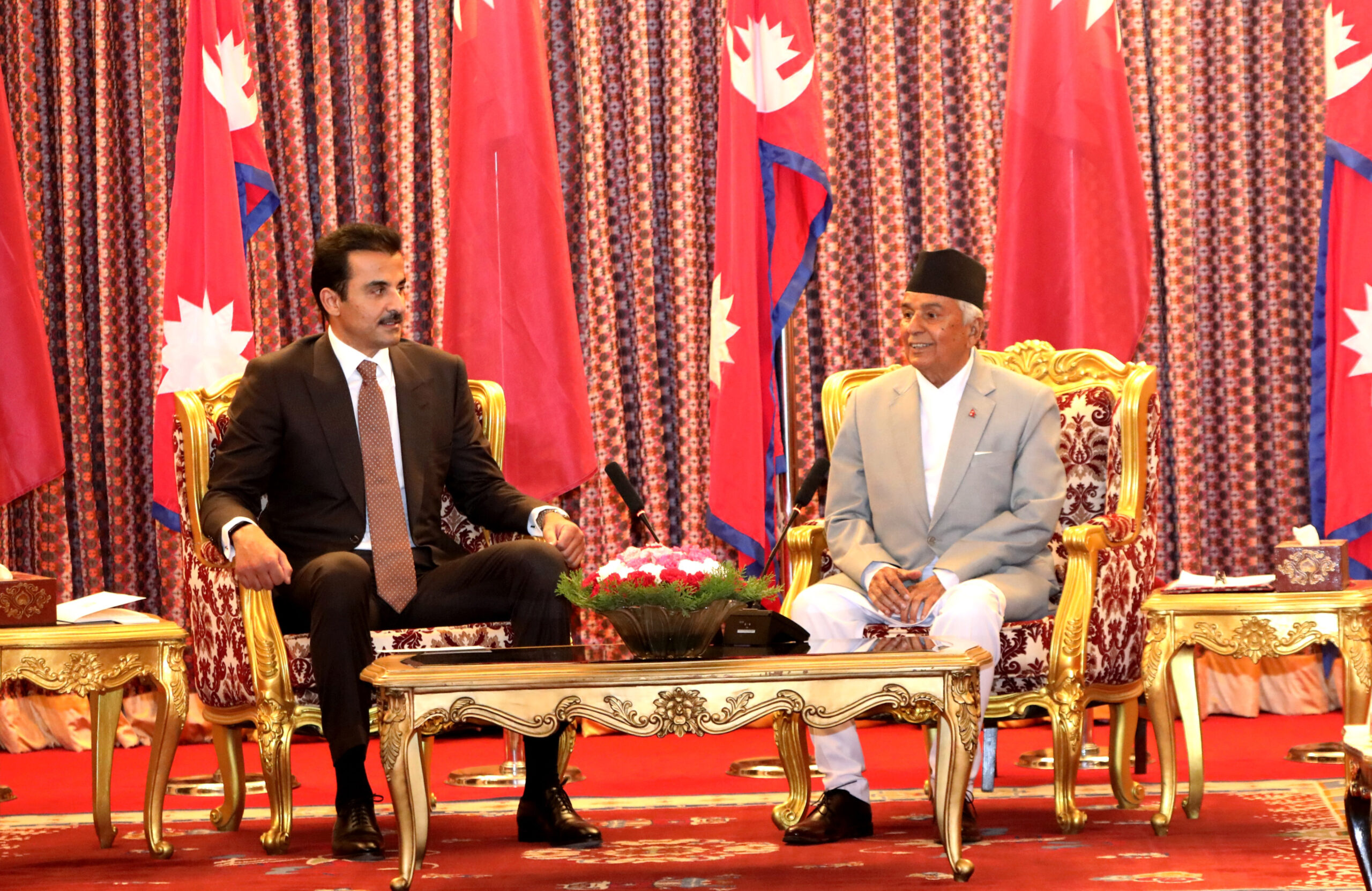
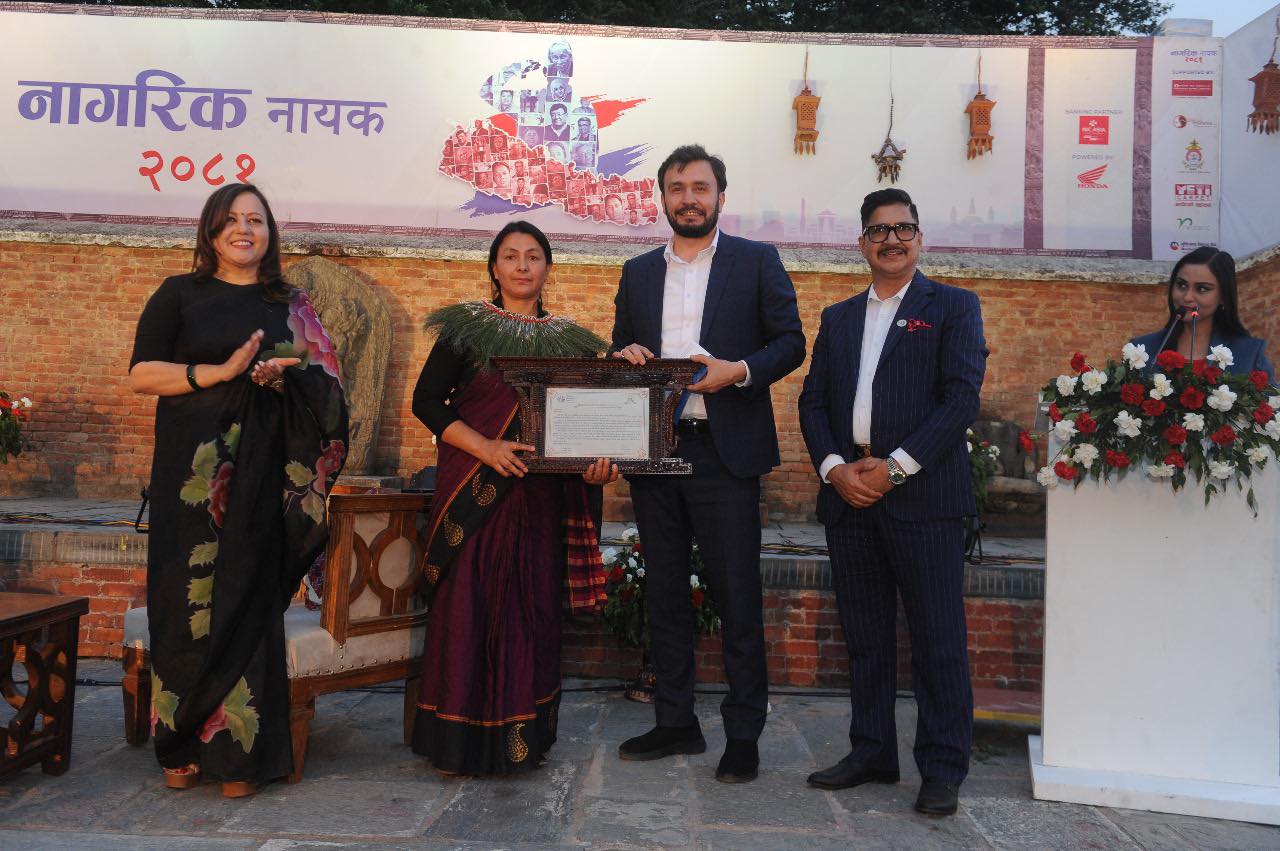
Leave A Comment